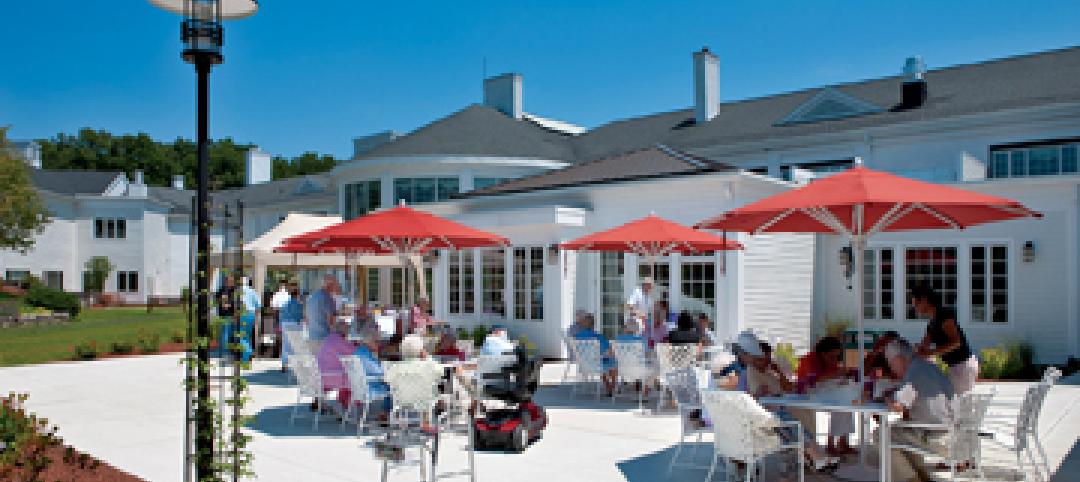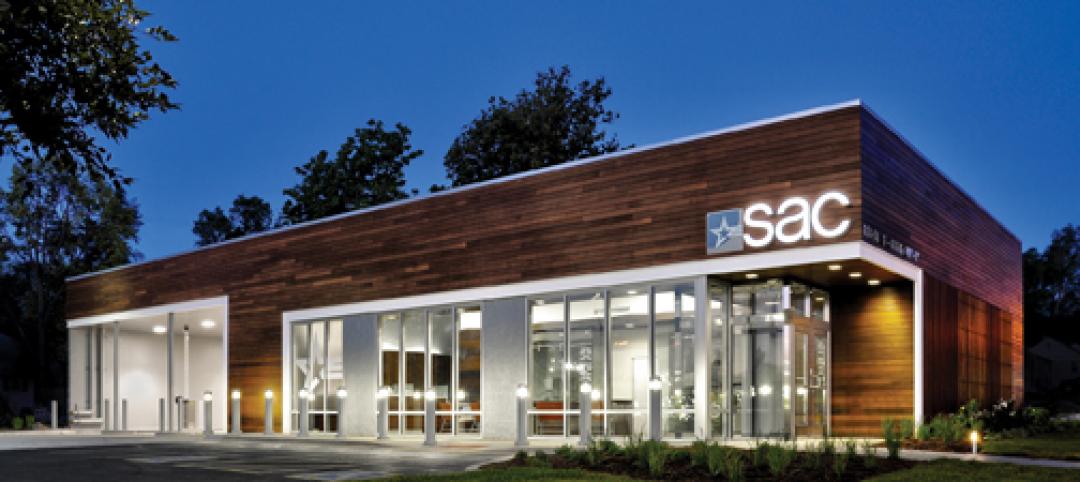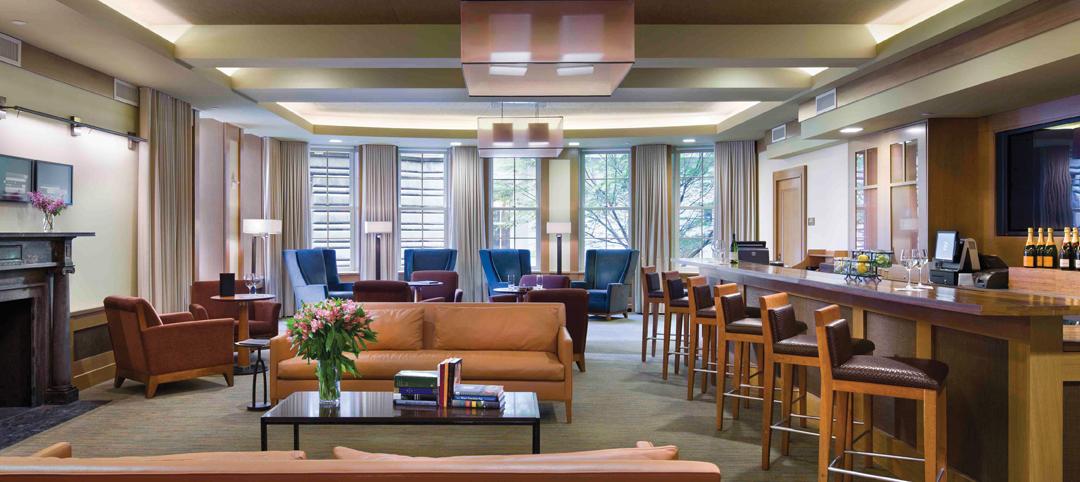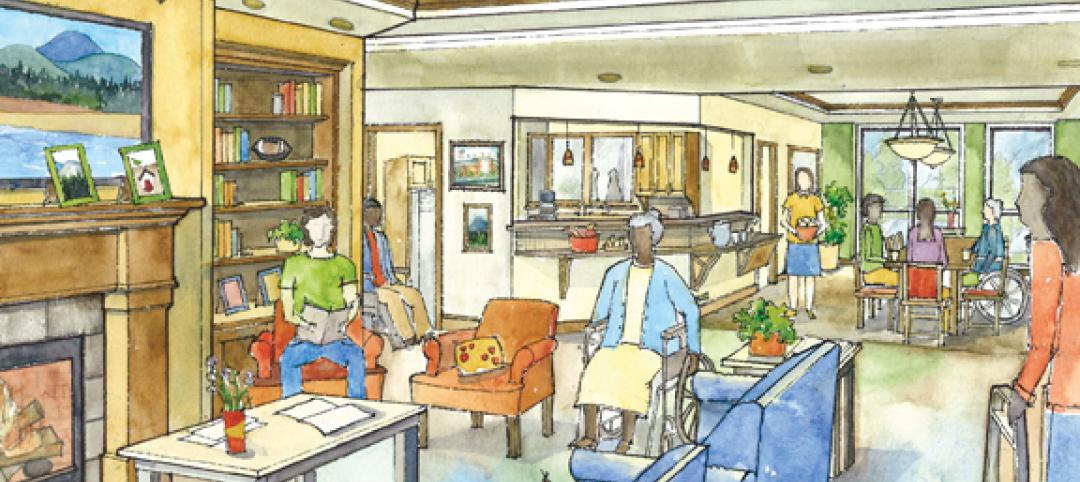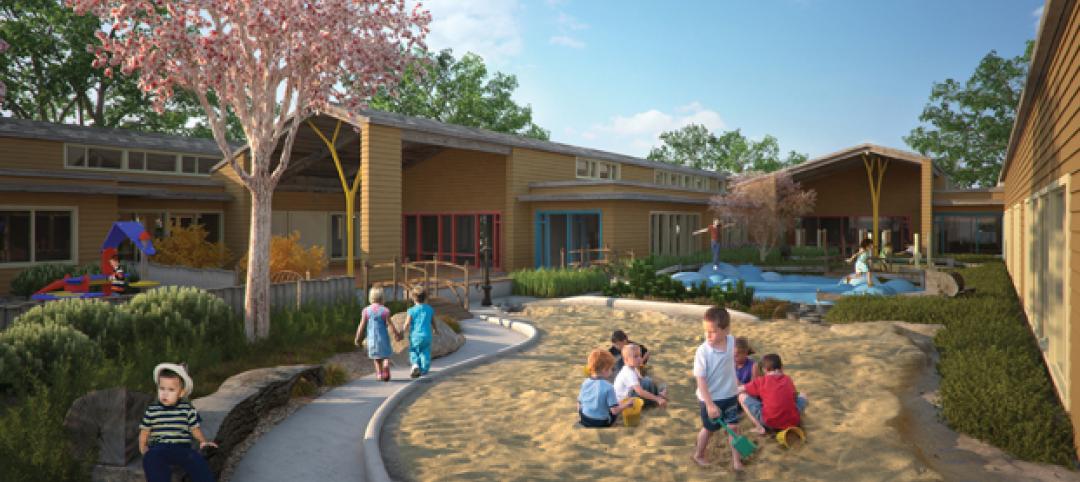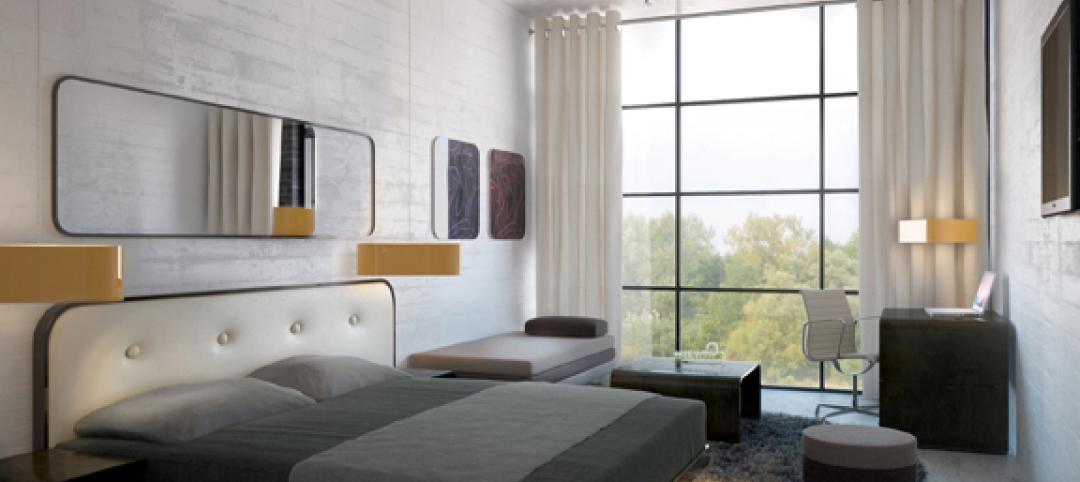The American Institute of Architects (AIA) today announced publication of 2030 by the numbers, the 2016 progress report assessing the work of architecture firms that are part of the AIA 2030 Commitment, a voluntary initiative to commit their practices to advancing the AIA’s goal of carbon-neutral buildings by the year 2030. The report is available and can be viewed here.
The 2030 Commitment represents a key part of the AIA membership's dedication to combating climate change, particularly with the recent U.S. withdrawal from the Paris Agreement. Despite that withdrawal, firms that sign on to and actively participate in the 2030 Commitment continue to directly support the goals of the climate accord, as part of the AIA's position that architects can—and should—mitigate the effects of climate change through policy advocacy, education, and energy modeling.
Key takeaways from the 2016 Progress Report:
- Projects reported an average predicted energy use intensity (pEUI) savings of 42 percent in 2016, climbing from 38 percent in 2015 and continuing the steps forward that the 2030 Commitment has taken over the last few years.
- The AIA 2030 energy target of 70 percent predicted energy savings is ambitious but achievable. In 2016 six firms achieved a portfolio-average predicted energy savings of 70 percent or greater, and 331 individual projects also met or exceeded this target.
- In 2016, the number of reporting firms grew 15 percent to 205. Additionally, with 53 new firms signing on to the Commitment, the overall number of signatories now totals more than 400.
- The potential energy savings from all 2016 projects represent approximately 16.7 million metric tons of greenhouse gas emissions - the equivalent of running almost five coal-fired power plants or powering 1.76 million homes for a year (EPA Greenhouse Gas Equivalencies Calculator).
- AIA data continues to demonstrate that energy modeling is an essential component of success, with modeled projects averaging pEUI reductions of just over 50 percent, as compared to only a 35 percent pEUI reduction for projects that were not modeled. However, as the share of modeled projects declined from 2015, more work is needed to better incorporate energy modeling across the profession.
Since 2009, participants in the AIA 2030 Commitment have reported the performance of their architecture firm portfolios over each calendar year. The data, collected via the 2030 Design Data Exchange (DDx), includes building type, area, baseline energy performance, and predicted energy performance. Among the data points reported are firm participation, total area of number of projects reported, percentage of projects that used energy modeling, and overall progress toward the 2030 goals.
Related Stories
| Mar 11, 2011
Renovation energizes retirement community in Massachusetts
The 12-year-old Edgewood Retirement Community in Andover, Mass., underwent a major 40,000-sf expansion and renovation that added 60 patient care beds in the long-term care unit, a new 17,000-sf, 40-bed cognitive impairment unit, and an 80-seat informal dining bistro.
| Mar 11, 2011
Research facility added to Texas Medical Center
Situated on the Texas Medical Center’s North Campus in Houston, the new Methodist Hospital Research Institute is a 12-story, 440,000-sf facility dedicated to translational research. Designed by New York City-based Kohn Pedersen Fox, with healthcare, science, and technology firm WHR Architects, Houston, the building has open, flexible labs, offices, and amenities for use by 90 principal investigators and 800 post-doc trainees and staff.
| Mar 11, 2011
Blockbuster remodel transforms Omaha video store into a bank
A former Hollywood Video store in Omaha, Neb., was renovated and repurposed as the SAC Federal Credit Union, Ames Branch. Architects at Leo A Daly transformed the outdated 5,000-sf retail space into a modern facility by wrapping the exterior in poplar siding and adding a new glass storefront that floods the interior with natural light.
| Mar 11, 2011
Historic McKim Mead White facility restored at Columbia University
Faculty House, a 1923 McKim Mead White building on Columbia University’s East Campus, could no longer support the school’s needs, so the historic 38,000-sf building was transformed into a modern faculty dining room, graduate student meeting center, and event space for visiting lecturers, large banquets, and alumni organizations.
| Mar 11, 2011
Mixed-income retirement community in Maryland based on holistic care
The Green House Residences at Stadium Place in Waverly, Md., is a five-story, 40,600-sf, mixed-income retirement community based on a holistic continuum of care concept developed by Dr. Bill Thomas. Each of the four residential floors houses a self-contained home for 12 residents that includes 12 bedrooms/baths organized around a common living/social area called the “hearth,” which includes a kitchen, living room with fireplace, and dining area.
| Mar 11, 2011
Oregon childhood center designed at child-friendly scale
Design of the Early Childhood Center at Mt. Hood Community College in Gresham, Ore., focused on a achieving a child-friendly scale and providing outdoor learning environments.
| Mar 11, 2011
Guests can check out hotel’s urban loft design, music selection
MODO, Advaya Hospitality’s affordable new lifestyle hotel brand, will have an urban Bauhaus loft design and target design-, music-, and tech-savvy guest who will have access to thousands of tracks in vinyl, CD, and MP3 formats through a partnership with Downtown Music. Guest can create their own playlists, and each guest room will feature iPod docks and large flat-screen TVs.
| Mar 11, 2011
Construction of helicopter hangars in South Carolina gets off the ground
Construction is under way on a $26 million aviation support facility for South Carolina National Guard helicopters. Hendrick Construction, the project’s Charlotte, N.C.-based GC, is building the 111,000-sf Donaldson Hangar facility on the 30-acre South Carolina Technology & Aviation Center, Greenville.
| Mar 11, 2011
Texas A&M mixed-use community will focus on green living
HOK, Realty Appreciation, and Texas A&M University are working on the Urban Living Laboratory, a 1.2-million-sf mixed-use project owned by the university. The five-phase, live-work-play project will include offices, retail, multifamily apartments, and two hotels.
| Mar 11, 2011
Chicago office building will serve tenants and historic church
The Alter Group is partnering with White Oak Realty Partners to develop a 490,000-sf high-performance office building in Chicago’s West Loop. The tower will be located on land owned by Old St. Patrick’s Church (a neighborhood landmark that survived the Chicago Fire of 1871) that’s currently being used as a parking lot.



